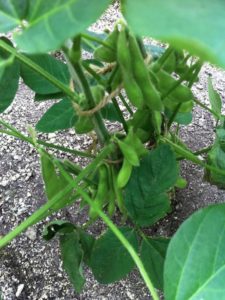Info from a Ph.D Biochemistry, background in cancer research and 100 studies accepted for publication in peer reviewed medical journals. He is not an employee of any company:
Soy decreases estrogen production, strengthens the immune system, inhibits cell proliferation, and reduces the production of reactive oxygen species. These are all effects that might reduce breast cancer risk.
In studies in both mice and rats with a functioning immune system, soy decreased breast cancer risk. But confusion has resulted by counter-claims on the internet. Bloggers more interested in the spectacular than in accuracy.Their blogs claimed soy definitely increased breast cancer risk and should be avoided at all cost. This was picked up by other web sites. Eventually, the claims were repeated so many times people believed them. A “myth” was created. it was never based on scientific evidence. In the meantime, scientists took a more responsible approach.
The question was settled a long time ago. Studies have shown no effect of soy consumption on breast cancer risk. Others have reported soy consumption decreased breast cancer risk. A meta-analysis of 18 previous clinical studies found that soy slightly decreased the risk of developing breast cancer (J Natl Cancer Inst, 98: 459-471, 2006). NONE of those studies found any evidence that soy increased the risk of breast cancer. A meta-analysis of all 5 studies was published in 2013 (Chi et al, Asian Pac J Cancer Prev., 14: 2407-2412, 2013). And combined the data from 11,206 breast cancer survivors in the US and China. Those with the highest soy consumption had a 23% decrease in recurrence and a 15% decrease in mortality from breast cancer.
The Latest Study? Canada (Zhang et al, Cancer, DOI: 10.1002/cncr.30615, March 2017). Data from The Breast Cancer Family Registry.. Women recently diagnosed with breast cancer or a family history of breast cancer. Included were 6235 breast cancer survivors from the registry. An ethnically diverse group with a median age of 51.8.. They were followed for 9.4 years. The results?:: A 21% decrease in all-cause mortality for women who had the highest soy consumption. The protective effect was greatest (35% reduction in all-cause mortality) for women with the highest soy consumption following breast cancer diagnosis suggesting soy plays an important role in breast cancer survival. Authors concluded “In this large, ethnically diverse cohort of women with breast cancer, higher dietary intake of [soy] was associated with reduced total mortality.
Note from us: It’s VERY important how soy is processed. We’re glad to give you information on who is doing it right.
